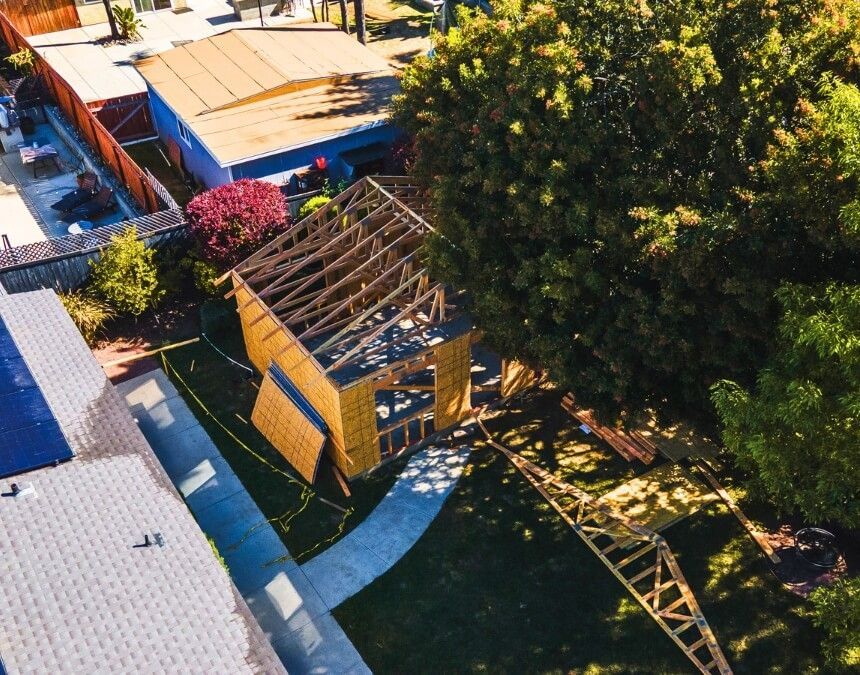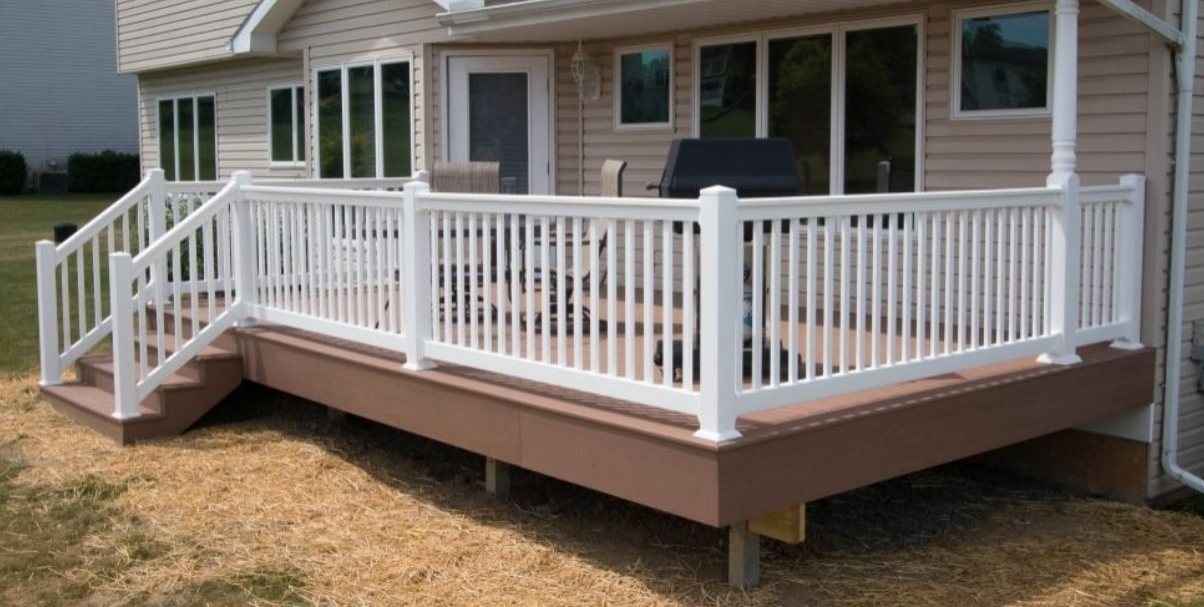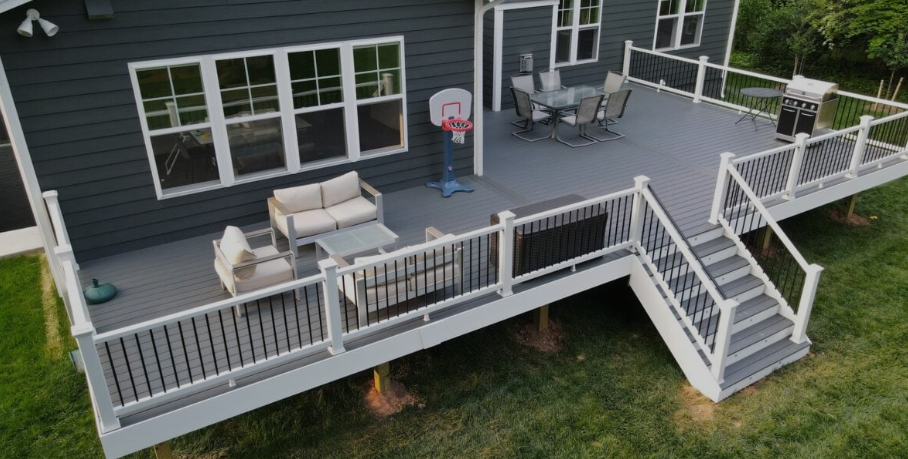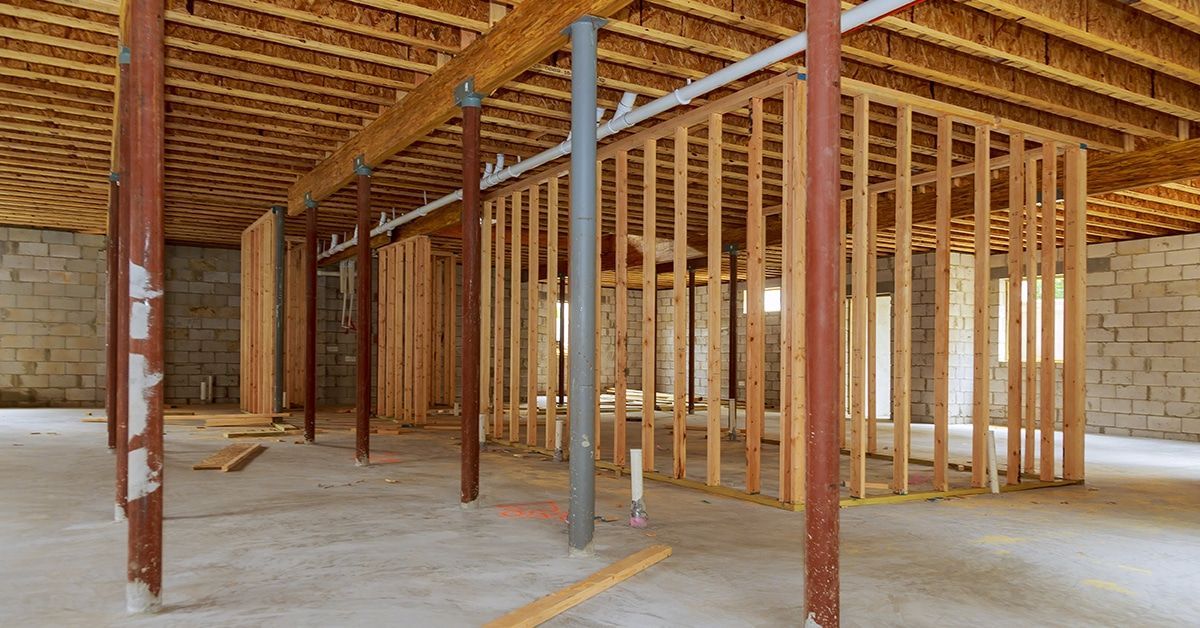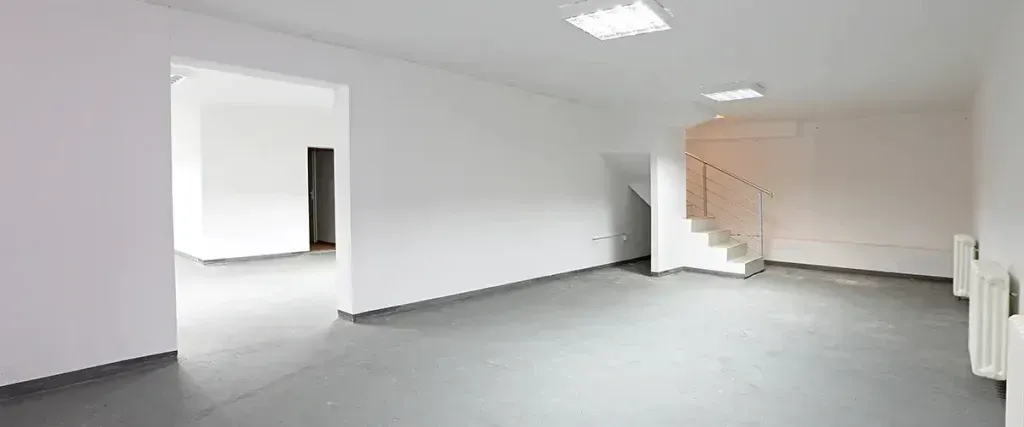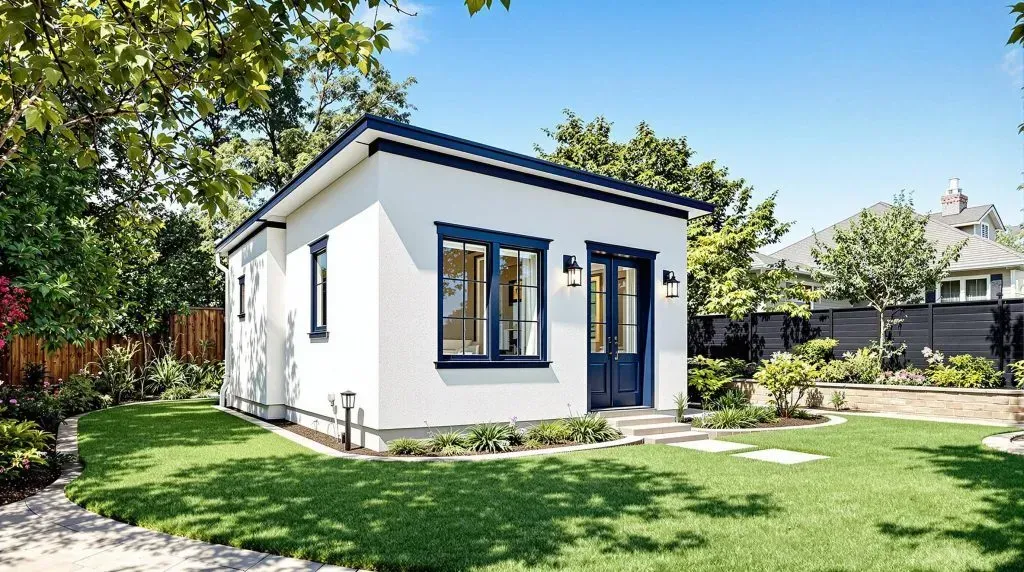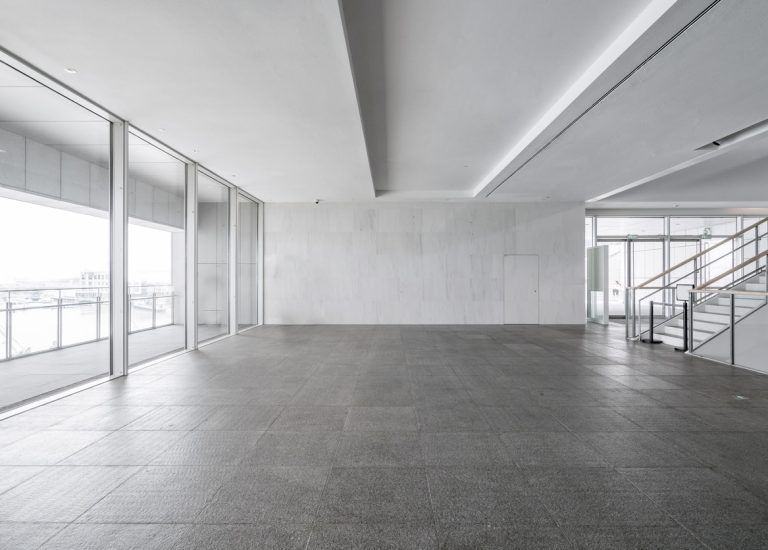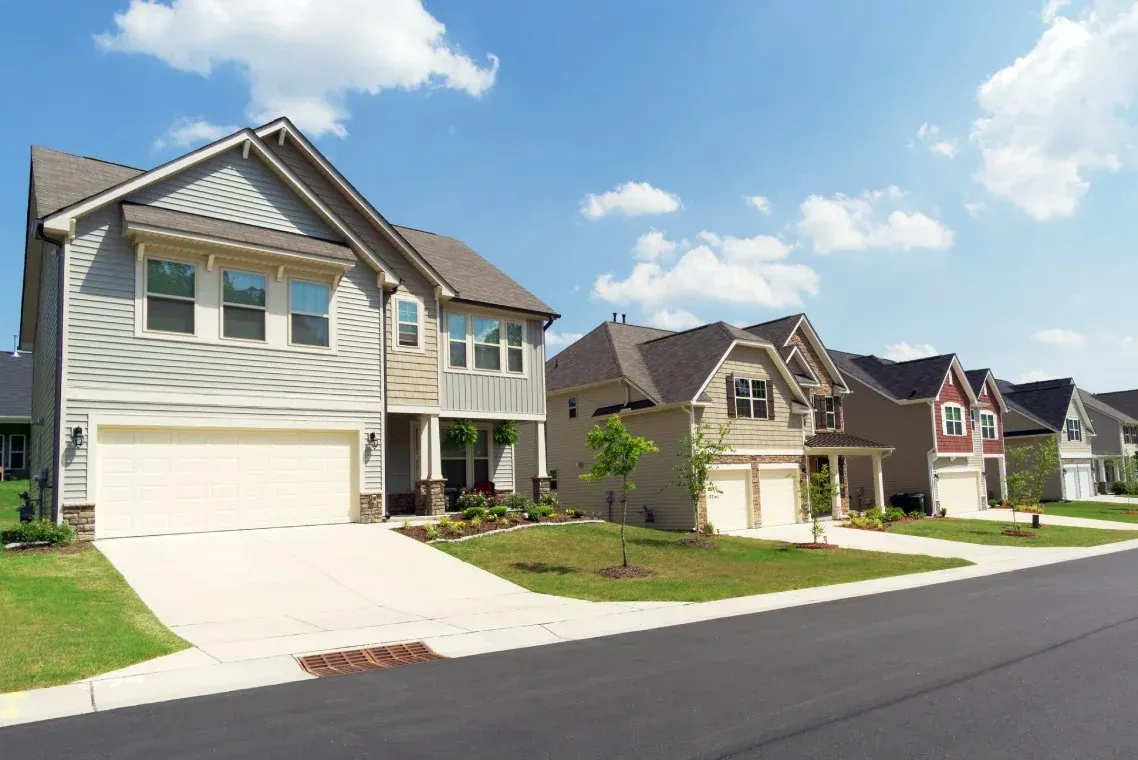Kitchen Addition vs. Kitchen Expansion - Rhode Island
Kitchen addition vs. kitchen expansion - what's the difference? A kitchen addition involves building new space beyond your home's existing footprint, while a kitchen expansion reconfigures existing interior space to make your kitchen larger. In Rhode Island, kitchen additions typically cost $100-$300 per square foot, while kitchen expansions range from $75-$200 per square foot.
What Is a Kitchen Addition?
A kitchen addition means building new square footage onto your Rhode Island home specifically for kitchen space. This involves extending your home's footprint by constructing new walls, foundation, and roof to create additional kitchen area.
Types of Kitchen Additions
Bump-Out Addition
- Extends kitchen 2-8 feet beyond existing wall
- Cost: $15,000-$35,000
- Ideal for: Adding counter space, breakfast nook, or pantry
- Timeline: 6-10 weeks
Full Kitchen Addition
- Completely new kitchen space (200-400 square feet)
- Cost: $30,000-$120,000
- Ideal for: Open-concept living, large families
- Timeline: 3-6 months
Second Story Addition
- Adds kitchen space above existing structure
- Cost: $40,000-$100,000
- Ideal for: In-law suites, rental units
- Timeline: 4-6 months
What Is a Kitchen Expansion?
A kitchen expansion reconfigures your existing home's interior space to make your kitchen larger without adding to your home's footprint. This typically involves removing walls, repositioning rooms, or converting adjacent spaces.
Types of Kitchen Expansions
Wall Removal/Opening
- Removes walls between kitchen and adjacent rooms
- Cost: $5,000-$15,000
- Ideal for: Creating open-concept layout
- Timeline: 2-4 weeks
Room Conversion
- Converts dining room, office, or closet into kitchen space
- Cost: $15,000-$45,000
- Ideal for: Maximizing existing square footage
- Timeline: 6-12 weeks
Galley to Open Kitchen
- Transforms narrow galley kitchen into spacious area
- Cost: $20,000-$60,000
- Ideal for: Older Rhode Island homes with compartmentalized layouts
- Timeline: 8-16 weeks
Cost Comparison: Addition vs. Expansion in Rhode Island
Kitchen Addition Costs
Foundation and Structural Work
- Foundation: $8-$15 per square foot
- Framing: $12-$20 per square foot
- Roofing: $8-$12 per square foot
- Siding: $6-$12 per square foot
Kitchen Addition Total Costs
- 100 sq ft bump-out: $15,000-$30,000
- 200 sq ft addition: $30,000-$60,000
- 400 sq ft addition: $60,000-$120,000
Kitchen Expansion Costs
Interior Renovation Work
- Wall removal: $500-$2,000 per wall
- Electrical relocation: $1,500-$4,000
- Plumbing relocation: $2,000-$5,000
- Flooring: $3-$12 per square foot
Kitchen Expansion Total Costs
- Simple wall removal: $5,000-$15,000
- Room conversion: $15,000-$45,000
- Full reconfiguration: $25,000-$65,000
Rhode Island Building Permits: Addition vs. Expansion
Kitchen Addition Permits
If you want to make additions to an existing structure, such as adding a new room, a porch, or a garage, you will usually need to obtain a building permit. Required permits include:
- Building permit: $500-$2,500
- Electrical permit: $150-$400
- Plumbing permit: $150-$400
- Mechanical permit: $150-$300
Kitchen Expansion Permits
You need a permit for all new construction, renovations, except minor repairs. Expansion permits depend on scope:
- Structural changes: Building permit required
- Electrical work: Electrical permit required
- Plumbing changes: Plumbing permit required
- Cosmetic only: Often no permits needed
Pros and Cons: Kitchen Addition vs. Expansion
Kitchen Addition Advantages
- Maximizes space: Creates entirely new square footage
- Preserves existing layout: Keeps current kitchen functional during construction
- Higher ROI: Adds significant home value
- Design flexibility: Start with blank slate
- Future-proof: Accommodates growing families
Kitchen Addition Disadvantages
- Higher cost: Most expensive option
- Longer timeline: 3-6 months typical
- Complex permits: Multiple approvals needed
- Yard impact: Reduces outdoor space
- Weather dependent: Exterior work affected by seasons
Kitchen Expansion Advantages
- Lower cost: More budget-friendly option
- Faster completion: 2-4 months typical
- Maintains footprint: Preserves yard space
- Energy efficient: Uses existing structure
- Simpler permits: Fewer approvals needed
Kitchen Expansion Disadvantages
- Space limitations: Constrained by existing walls
- Disrupts other rooms: May lose dining room or living space
- Structural challenges: Load-bearing walls complicate projects
- Limited design options: Must work within existing framework
- Lower ROI: Less value added than additions
Which Option Is Right for Your Rhode Island Home?
Choose Kitchen Addition If:
- You have adequate yard space
- Your lot meets setback requirements
- You need significant additional space (200+ sq ft)
- You want to preserve existing room functions
- Budget allows $25,000-$90,000+
- You're planning long-term residence
Choose Kitchen Expansion If:
- You have limited yard space or strict setbacks
- Adjacent rooms are underutilized
- You need moderate additional space (100-200 sq ft)
- Budget is $15,000-$60,000
- You want faster completion
- You're comfortable losing other room space
Rhode Island-Specific Considerations
Zoning and Setback Requirements
Urban Areas (Providence, Warwick, Cranston)
- Stricter setback requirements limit addition size
- Lot coverage restrictions may favor expansion
- Historic districts have additional regulations
Suburban Areas (Barrington, East Greenwich, Westerly)
- More flexible setback requirements
- Larger lots accommodate additions better
- Neighborhood character considerations
Coastal Areas (Newport, Narragansett, Westerly)
- Coastal building codes affect additions
- Flood zone requirements increase costs
- Environmental regulations may apply
Seasonal Considerations
Best Times for Kitchen Projects in Rhode Island
- Spring (March-May): Ideal for starting additions
- Summer (June-August): Peak construction season
- Fall (September-November): Good for interior expansions
- Winter (December-February): Indoor expansion projects only
Design Trends: Rhode Island Kitchen Additions vs. Expansions
Popular Addition Features
- Large kitchen islands: 8-12 feet long
- Breakfast nooks: Bay window seating areas
- Pantry rooms: Walk-in storage spaces
- Mudroom connections: Entry from garage
- Outdoor access: Deck or patio doors
Popular Expansion Features
- Open-concept layouts: Kitchen-living room combination
- Peninsula counters: Instead of islands
- Built-in storage: Maximize vertical space
- Breakfast bars: Counter-height eating areas
- Sight lines: Visual connection to other rooms
ROI: Kitchen Addition vs. Expansion Value in Rhode Island
Kitchen Addition ROI
- Average return: 60-75% of investment
- Resale value increase: $20,000-$70,000
- Market appeal: High demand feature
- Payback period: 5-8 years
Kitchen Expansion ROI
- Average return: 70-85% of investment
- Resale value increase: $15,000-$45,000
- Market appeal: Moderate to high demand
- Payback period: 3-5 years
Timeline Comparison: Addition vs. Expansion
Kitchen Addition Timeline
Planning Phase (8-12 weeks)
- Design and architectural drawings: 4-6 weeks
- Permit applications: 2-4 weeks
- Contractor selection: 2-3 weeks
Construction Phase (12-20 weeks)
- Foundation and framing: 4-6 weeks
- Roofing and siding: 3-4 weeks
- Electrical, plumbing, HVAC: 2-3 weeks
- Kitchen installation: 3-4 weeks
- Final finishes: 2-3 weeks
Kitchen Expansion Timeline
Planning Phase (4-8 weeks)
- Design and planning: 2-3 weeks
- Permit applications: 1-2 weeks
- Contractor selection: 1-2 weeks
Construction Phase (6-12 weeks)
- Demolition: 1-2 weeks
- Structural work: 2-3 weeks
- Electrical and plumbing: 2-3 weeks
- Kitchen installation: 2-3 weeks
- Final finishes: 1-2 weeks
Financing Your Kitchen Project in Rhode Island
Popular Financing Options
- Home equity loan: Fixed rates, predictable payments
- Home equity line of credit (HELOC): Flexible borrowing
- Cash-out refinance: Potentially lower interest rates
- Personal loan: No collateral required
- Contractor financing: Builder-arranged options
Rhode Island-Specific Programs
- Rhode Island Housing: First-time buyer programs
- National Grid rebates: Energy-efficient appliances
- Local credit unions: Competitive rates for residents
Choosing the Right Contractor in Rhode Island
Key Qualifications
- Licensed and insured: Rhode Island contractor's license
- Local experience: Familiar with RI building codes
- Portfolio: Similar kitchen projects completed
- References: Recent Rhode Island clients
- Permit expertise: Handles applications and inspections
Questions to Ask
- How many kitchen additions/expansions have you completed in Rhode Island?
- What's your typical timeline for this type of project?
- Do you handle all permit applications?
- What's your policy on change orders?
- Can you provide references from recent projects?
Common Mistakes to Avoid
Kitchen Addition Mistakes
- Ignoring setback requirements: Check zoning before planning
- Undersizing electrical: Plan for modern appliance needs
- Poor traffic flow: Consider movement between spaces
- Inadequate lighting: Don't rely solely on overhead fixtures
- Forgetting storage: Include pantry and cabinet space
Kitchen Expansion Mistakes
- Removing load-bearing walls: Requires structural engineering
- Inadequate ventilation: Larger spaces need proper airflow
- Ignoring sight lines: Consider views from other rooms
- Poor space planning: Maintain functional work triangle
- Electrical shortfalls: Upgrade panel if needed
Frequently Asked Questions
Which is more cost-effective: addition or expansion?
Kitchen expansions typically cost 25-40% less than additions, making them more cost-effective for budget-conscious homeowners.
How long do kitchen projects take in Rhode Island?
Kitchen additions take 4-6 months, while expansions take 2-4 months, including permits and construction.
Do I need an architect for my kitchen project?
Additions typically require architectural drawings, while simple expansions may only need contractor plans.
What permits do I need in Rhode Island?
You need a permit for all new construction, renovations, except minor repairs. Specific permits depend on project scope.
When is the best time to start a kitchen project?
Spring is ideal for additions (outdoor work), while expansions can start any time of year.
Will I be able to cook during construction?
Expansions typically disrupt cooking for 2-4 weeks, while additions may allow continued use of existing kitchen.
Ready to transform your Rhode Island kitchen?
Rockhouse Construction specializes in both kitchen additions and expansions throughout Rhode Island. Our experienced team will help you determine the best approach for your home, handle all permits, and deliver exceptional results on time and within budget.
Contact us today for a free consultation and personalized cost estimate for your kitchen project.
